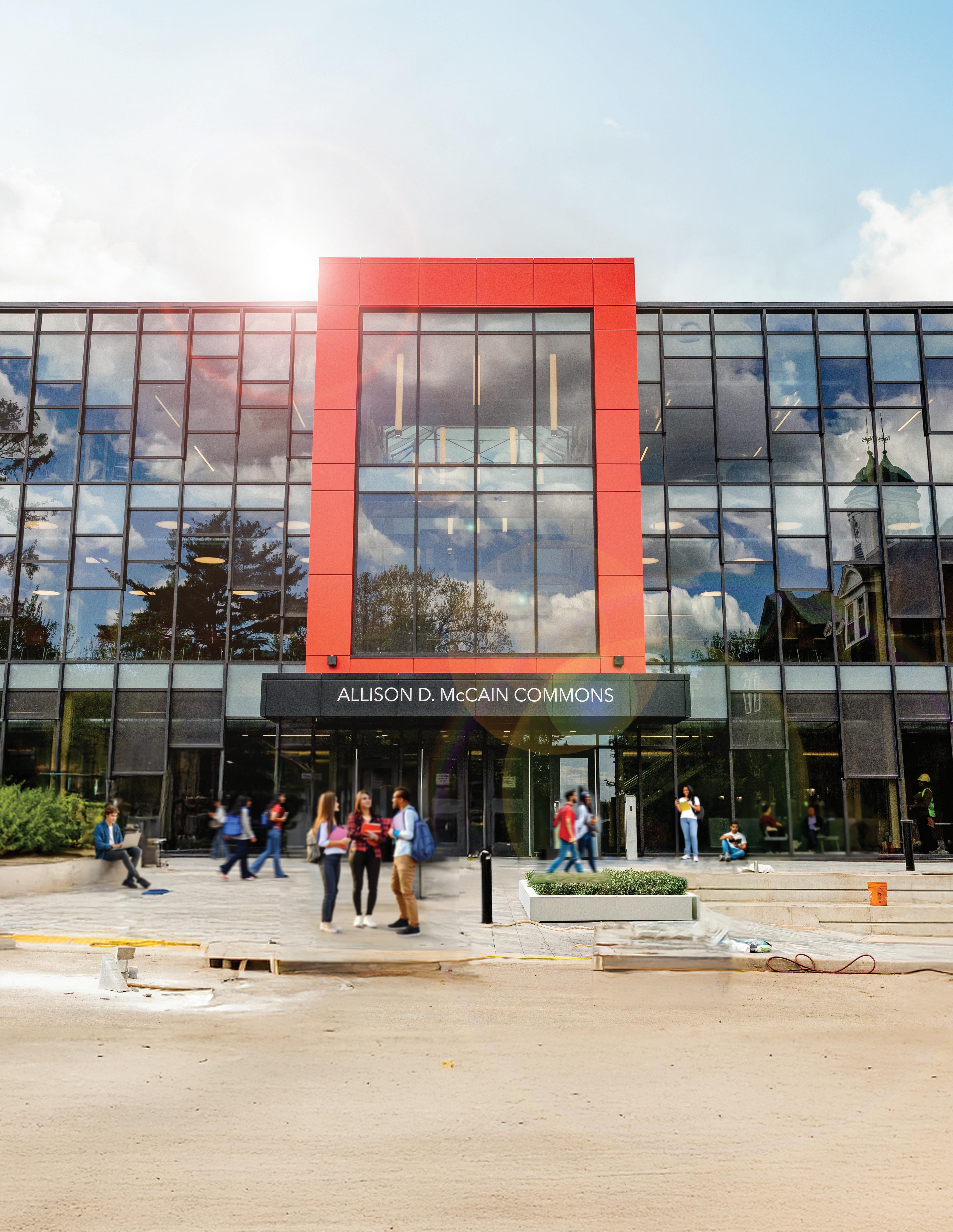

Student handbook ENGINEERING
INGENUITY RESEARCH INNOVATION DESIGN TECHNOLOGY
WORLD-CLASS
CREATIVITY EXPERIENCE HANDS-ON COLLABORATE KNOWLEDGE
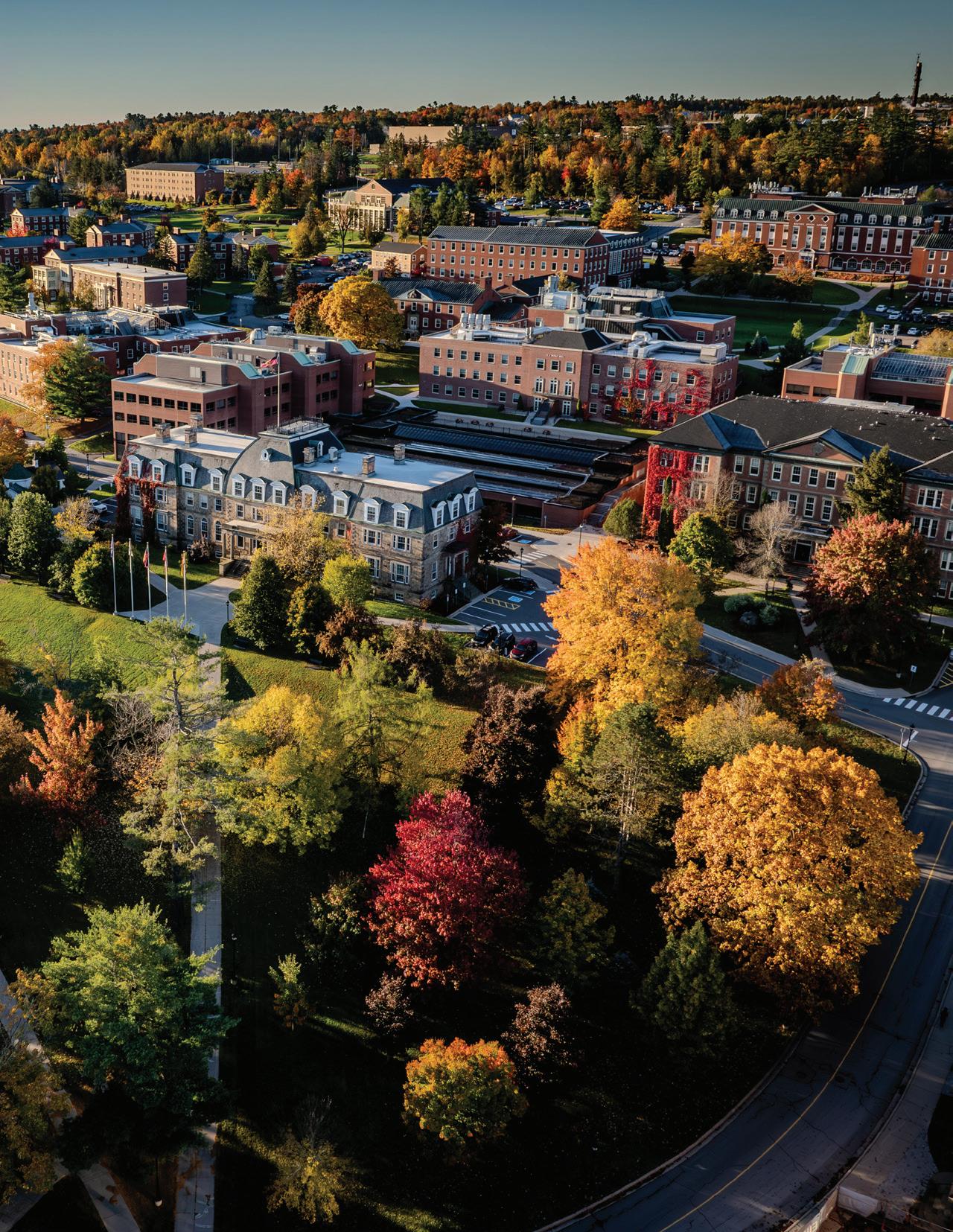
LEADING DISCOVERY AND INNOVATION SINCE
1785.
WELCOME TO UNB ENGINEERING!

As the oldest engineering program in Canada, UNB engineering is thrilled to welcome you to our vibrant community of innovators, problemsolvers, and future leaders. This is the start of an exciting journey, and we are so proud to have you join us.

AtUNB engineering, we’re committed to providing you with a world-class education that blends hands-on learning, cutting-edge research, and real-world application. From excellent lab facilities to collaborative projects that transform ideas into solutions, your time here will prepare you to tackle the challenges of tomorrow.
Our dedicated faculty and staff are here to support and guide you every step of the way. Many of our professors are not only experts in their fields but also passionate mentors who are eager to see you succeed. With 14% of our researchers ranking among the top 2% globally, you’ll be learning from some of the brightest minds in engineering.
For the next several years, this Faculty will be your home, and we want to make sure that you feel supported throughout your degree. Your first year of university is exciting, but it can also be challenging. To help guide you on this journey, we’ve put together a student handbook which will provide you with all the information you’ll need to start your engineering degree.
This guidebook is your go-to resource for everything you’ll need to navigate your first year. Inside, you’ll find information about your courses, campus resources, and tips to make the most of your time here. We encourage you to get involved, ask questions, and take advantage of all the opportunities UNB engineering has to offer.
As you embark on this exciting chapter, remember that you’re now part of a long-standing tradition of excellence and innovation. UNB engineering has a proud history of shaping some of the world’s most talented engineers, and we’re excited to see how you’ll contribute to this legacy.
Welcome to the start of your engineering adventure. We can’t wait to see the impact you’ll make!
Warm regards,
DR. L. JOSHUA LEON P.ENG Dean of Engineering
(Academic) Dean of Engineering,
JUAN ANTONIO CARRETERO, DR. JUAN ANTONIO CARRETERO P.ENG. Associate
YOUR UNB ENGINEERING TEAM
At UNB engineering, we’re here to support you every step of the way as you begin your university journey. With a variety of resources and a knowledgeable team ready to help, we’re dedicated to ensuring you have everything you need to succeed on our Fredericton campus.
GENERAL FIRST YEAR ADVISING
Theresa Murray
Administrative Secretary and Student Advising tdm@unb.ca
ACADEMIC SUPPORT
Dr. Ian Church P.Eng.
Assistant Dean (Students) ian.church@unb.ca
MANAGER
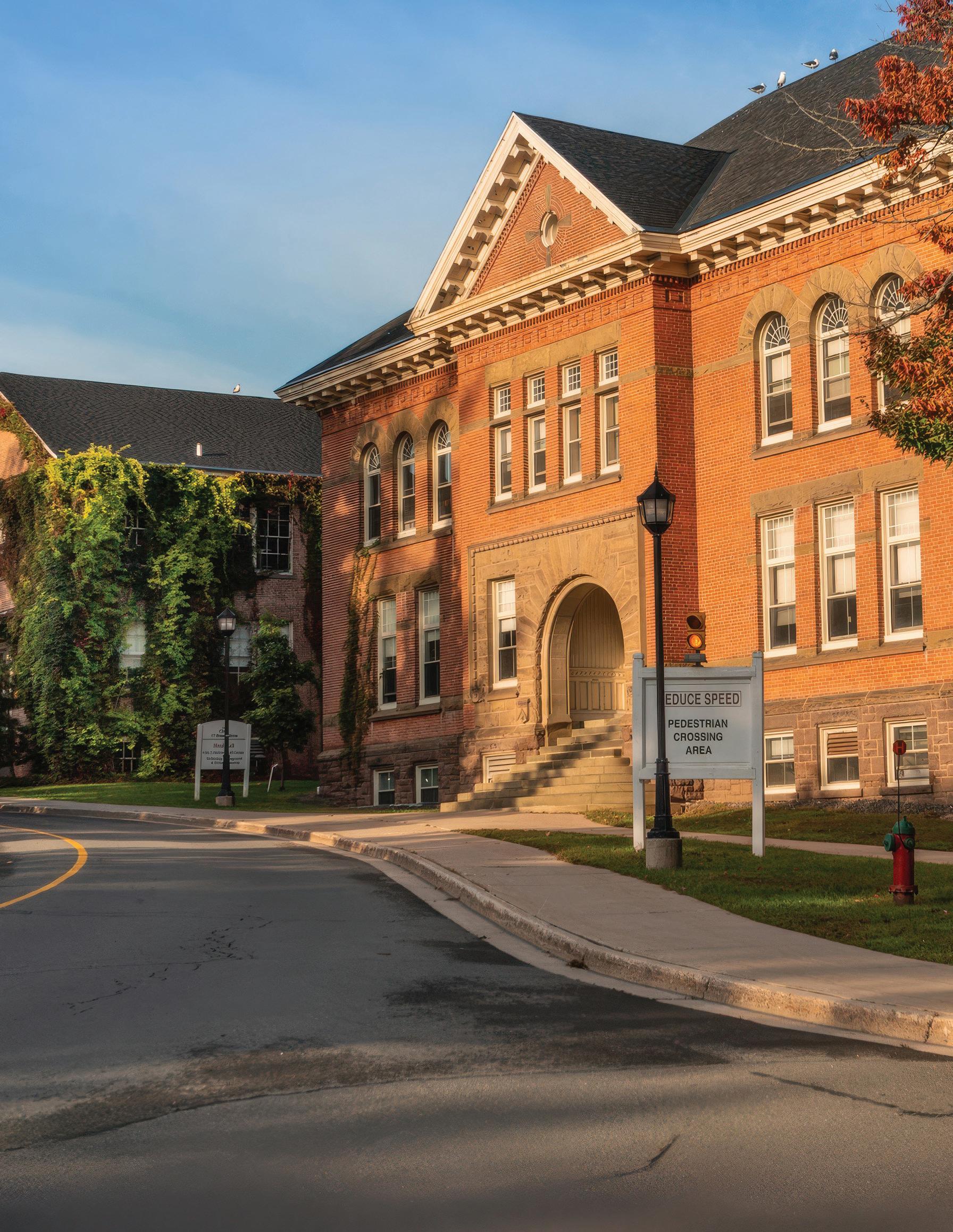
Katie Skead P.Eng. katie.skead@unb.ca
OVERVIEW OF THE FACULTY
UNB engineering is one of Canada’s leading engineering schools, recognized for its outstanding research and state-of-the-art facilities. With over $14 million in research funding and some of the best labs in the country, we are committed to driving innovation and excellence.
LEARN FROM WORLD-CLASS PROFESSORS
STUDENT-TOFACULTY RATIO 15:1
14%
OF OUR
RESEARCHERS RANK AMONG THE TOP 2% GLOBALLY
EXPLORE VARIOUS DISCIPLINES allowing you the flexibility to discover your passion before choosing your path
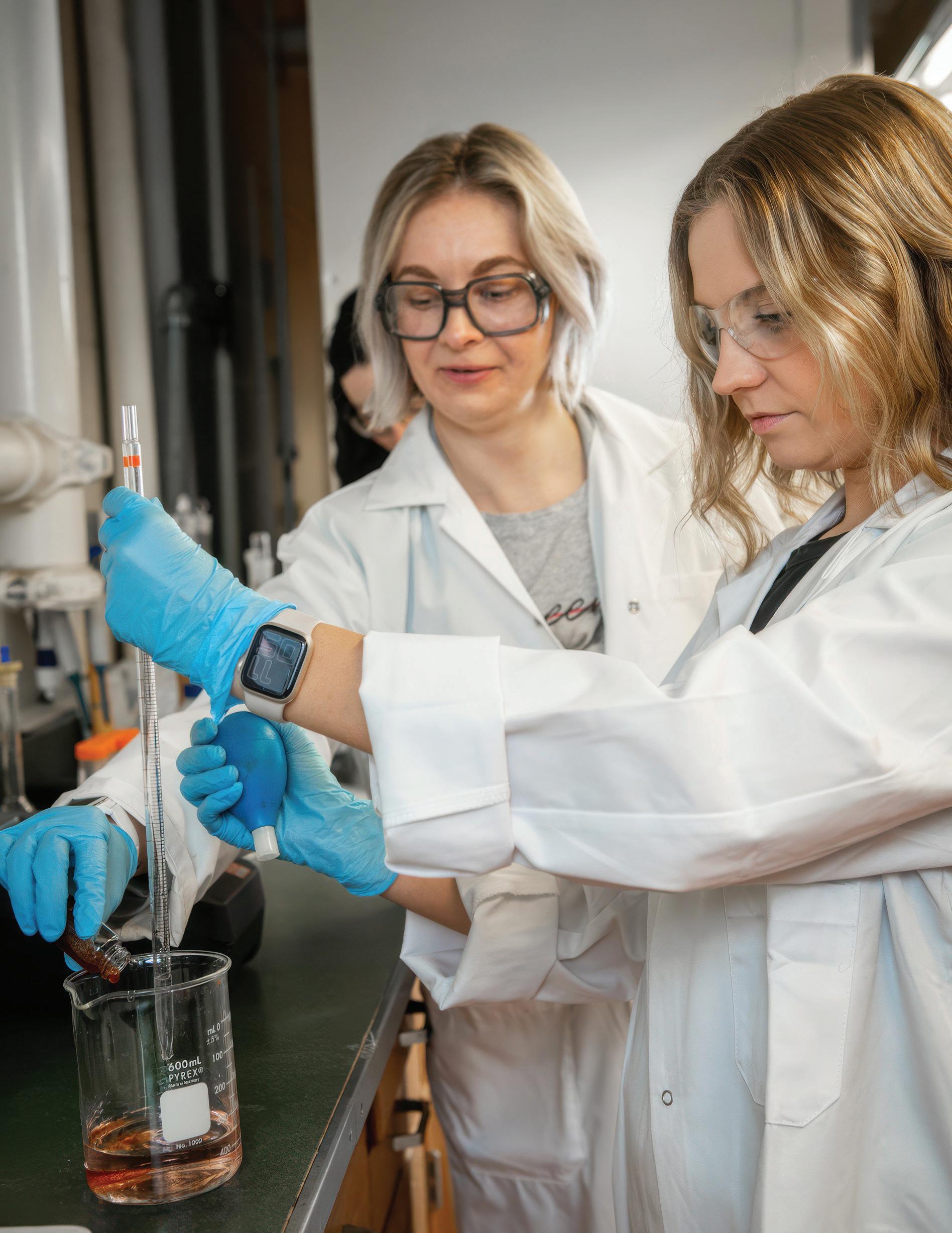
YOUR OPTIONS ARE AS BIG AS YOUR IMAGINATION
Whether in high-level labs, out in the field, or through co-op placements, you’ll have the chance to fully indulge your curiosity and develop your skills. Shape an outstanding future for yourself through one of our many programs. Start your adventure with UNB engineering.
YOUR FIRST YEAR OF ENGINEERING
All students who enter Engineering directly from high school are enrolled initially as undeclared students (BScE) and take a “Common First Term” of courses.
Students should indicate their program preferences to the dean’s office before the last day of Fall Term classes. A survey will be sent to students, asking them to select their top three choices.
Space may be limited in some programs. Enrolment to these programs will be based on space availability and competitive assessments of academic performance after first or second terms. All students who have been accepted to the faculty are guaranteed a program of study after successfully completing their first year.
Programs in the bachelor of science in engineering (BScE) are offered in the disciplines listed on the side, along with the program contacts. They can put you in touch with departmental advisors if you have specific questions about a discipline.
gge@unb.ca
tme@unb.ca 1 2 3 4
chemeng@unb.ca
civil-ug@unb.ca
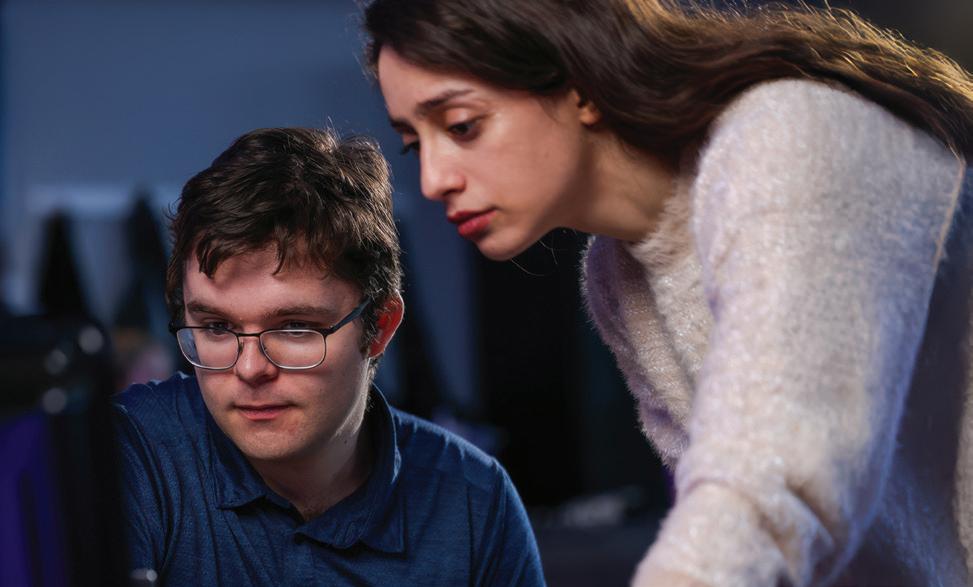

HOW TO GET STARTED AT UNB
STUDENT ESSENTIALS
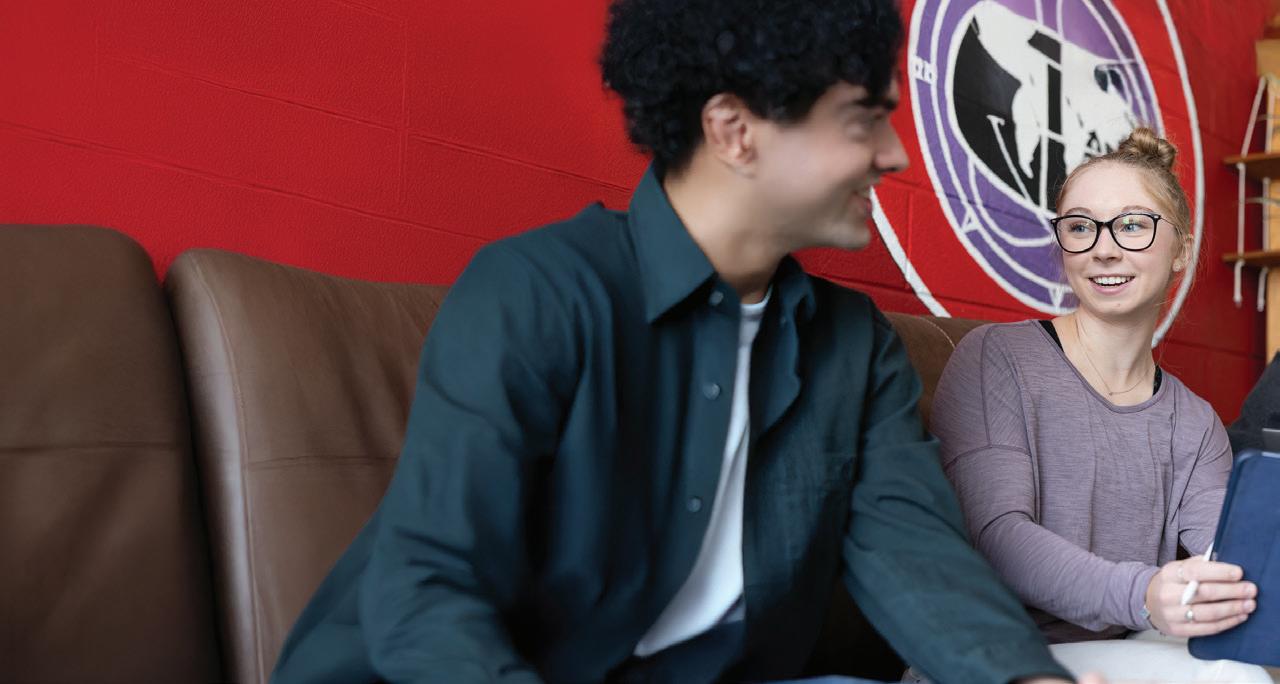
ACADEMIC CALENDAR
The UNB Undergraduate Academic Calendar is your contract with the university. It provides information on academic dates, admission and university regulations, financial information, accommodations and services, degree programs, and courses.
ACADEMIC ADVISING
Academic advising will help guide you toward achieving your academic goals. Academic advisors help students:
A Make sense of their plans and aspirations
A Harness their strengths and interests
A Learn and understand academic regulations and policies
A Access campus resources
Every student is assigned an academic advisor. To find your advisor, visit the academic advising web page.
To protect student privacy, we are not able to share specific academic or personal information with anyone outside of the university, including the parents and guardians, without the student's explicit consent. We understand that families want to support their students, and while we’re happy to provide general information, we encourage students to communicate directly with us if they have any concerns regarding their academics.
STUDENT ID (UNB ID)
Your UNB ID is a unique number provided in your acceptance email or letter. It is crucial for accessing university systems and services. Always have it handy when communicating with UNB staff or using online systems.
UNB LOGIN CREDENTIALS
Once admitted, you will receive your UNB login ID and password These credentials give you access to systems like MyUNB Intranet and university email. Set up your password as instructed, and you can reset or manage it anytime through UNB IT Services.
UNB EMAIL
Your UNB email (username@unb.ca) is the official communication channel for everything from orientation updates to course details. It's important to check this email regularly. You can access it through the MyUNB Portal after activating your login credentials.
MYUNB INTRANET:
The MyUNB Intranet is your hub for academic, financial, and personal information. Tasks you can manage here include:
A View your class schedule
A Search for courses
A Add or drop classes
A Check grades and transcripts
A Apply for scholarships or financial aid
A Update your personal information
A Accessing tax forms
UNB UCARD
The UNB UCard is your student ID and access pass to campus life. You’ll use it for accessing university services, including residences, meal plans, libraries, and athletic facilities. You can add money to your UCard to pay for on-campus printing and photocopying, goods, and services through your UCard Cash account.
To get your UCard, submit your photo online (can be submitted ahead of time) and wait for an email confirming it's ready. Then, bring your governmentissued photo ID (driver’s license or passport) to pick it up during orientation or when you arrive at UNB.
The UCard Mobile ID is also available to all UNB Fredericton students. Use your iPhone, Apple Watch or Android phone at all locations on campus where you would normally use a physical UCard.
To set up your UCard Mobile ID, follow the instructions on the UCard Office SharePoint page
Marshall d’Avery Hall, room 106 | (506) 453-5148 | ucard@unb.ca
PARKING ON CAMPUS
Students can get virtual parking permits through the HotSpot app or portal. All permits work in general parking areas. Hourly and daily options are also available. Be sure your license plate info is correct and your permit is active when parking on campus.
UNBSAFE APP
UNBSafe is a mass communication tool that will send alerts to students, faculty and staff in situations that pose an immediate safety or security risk to our community, including storm closures, power outages, fires, chemical spills and other active threats on campus. You will receive an “all clear” notification when the issue is resolved.
You can access additional safety features and services through the app:
A Campus maps
A Emergency procedures
A Contacts for support services
A Friend walk: allows users to share their location with a friend for added safety while travelling on or around campus.
A Mobile blue light (Fredericton campus): allows users to instantly share their location with campus security if they feel unsafe.
A Virtual walk home (Fredericton campus)
A Safety patrol is primarily for the purpose of protecting UNB students and visitors while they are on campus, as well as to ensure the protection of UNB property from vandalism and to uphold the Student Disciplinary Code regulations.
For further questions, contact security@unb.ca
CLASSROOM ESSENTIALS
D2L BRIGHTSPACE:
D2L Brightspace is UNB's learning management platform. This platform supports online and blended courses, as well as in-person classes. You’ll find course materials like syllabi, assignments, lecture slides, and recordings here. Log in with your UNB credentials once the term begins.
MICROSOFT OFFICE 365:
As a UNB student, you have access to the Microsoft 365 suite, which includes Word, PowerPoint, Excel, and OneDrive cloud storage. You can download the software or use the web-based versions by using your UNB email and password to login.
LAPTOP COMPUTER:
UNB engineering does not require a specific laptop. Students use both Mac and Windows devices, based on personal preference. While various software may be used in courses, no single device
is mandatory. Students without a laptop can access on-campus computer labs or borrow laptops from the library for on-site use.
UNB offers students free access to a variety of software. The programs available to students include: MATLAB • ArcGIS • Maple
Find instructions on how to download the free software through the ITS self serve site
If your course requires software that is not provided by the university, please speak with your course instructor on how to access it safely and appropriately.
The computers in the computer labs and libraries across campus also have software available for use.
RESOURCES AND STUDENT SUPPORTS
STUDENT ACCESSIBILITY CENTRE
ACADEMIC ADVISOR
Every student is assigned an academic advisor. To find your academic advisor, visit the Academic Success SharePoint page.
REGISTRAR’S OFFICE
The Registrar’s Office supports the academic mission by providing information about and services related to academic programs and degree requirements, registration and enrollment verification, transfer credit evaluation, graduation audits and degree conferrals, and maintenance of permanent academic records.
UNB.ca/registrar
Sir Howard Douglas Hall, room 201
The Student Accessibility Centre (SAC) provides a variety of on-campus services and supports to UNB students with disabilities. Please note that many of the services require registration with the centre. Services offered: disability guidance, support and advocacy, arrangements for instructional, classroom and test/exam accommodations, referrals to on-campus or community-based services, assistance with Canada Student Grant for Students with Permanent Disabilities applications, Learning Strategist support and Assistive Technology support.
Marshall d ’Avery Hall, room 212
UNB.ca./academic-success/accessibility
CAREER DEVELOPMENT & EMPLOYMENT SERVICES
Career Development & Employment Services (CDES) offers advising and valuable career and employment resources to students and recent graduates.
CDES provides support to students by:
A Assisting them in understanding the correlation between their degree program and diverse career options
A Providing personal guidance, directed exploration, and self-evaluation to identify the most suitable career paths
A Personalized coaching for interviews
A Suggesting ways to develop competencies employers seek in the job market
A Directing them to employment programs
A Connecting them to on-campus and off-campus employment opportunities
A Provide access to career and employmentrelated resources
For more information and to book an appointment with a career advisor, visit the CDES SharePoint page
UNB also provides students with access to an online portal called ExperienceUNB to search and apply for full-time and part-time jobs on or off campus, co-op opportunities, and work-study positions. Students can log into the portal using their UNB ID and password.
Neville Homestead Building experience.unb.ca employment@unb.ca
COUNSELLING SERVICES
UNB Counselling Services provides a range of free, confidential short-term mental health services to students at UNB. Appointments are offered inperson, over the phone, or by video (Microsoft Teams)
C.C. Student Services Centre, 2nd floor
For more information and to request an appointment, visit: UNB.ca/sas/wellness/counselling
FINANCIAL AID
The Financial Aid Office provides advice and financial support to students requiring assistance to finance their university education.
The Financial Aid Office provides information and assistance on:
A Bursaries and awards
A Federal and provincial government student loan programs
A Preparing a budget and developing a financial plan as well as financial literacy presentations and resources
C.C. Jones Building, 1st floor UNB.ca/sas/finance
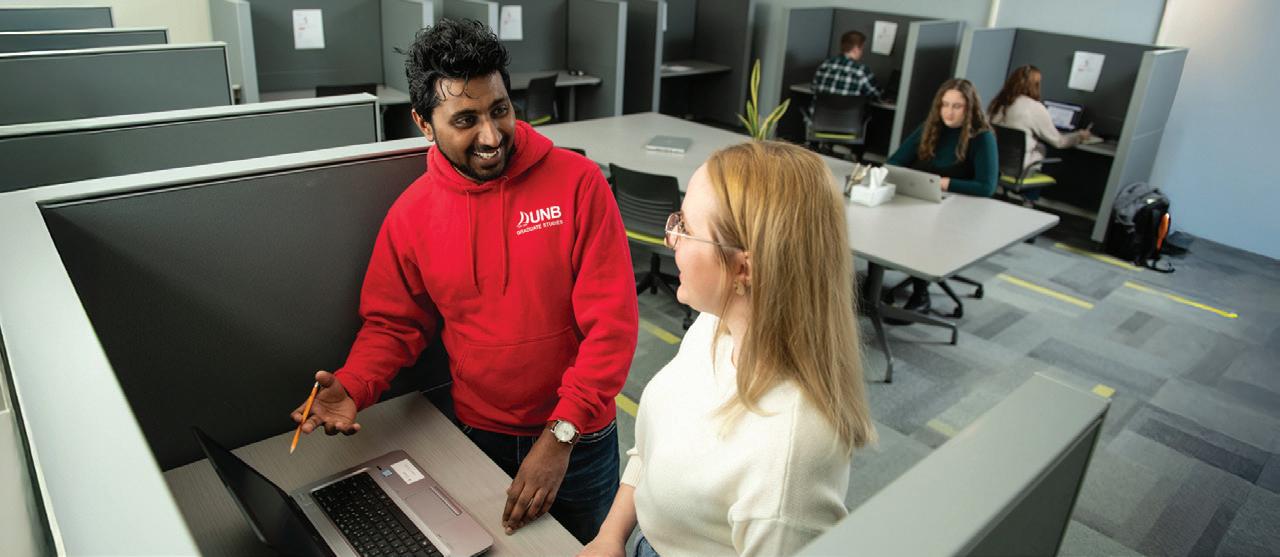
MONEY MATTERS
Visit the Money Matters webpage for more information on:
A Tuition and fees
A Residence and meal plans
A Financial aid
A Scholarships
A Budgeting
A Student employment
UNB.ca/moneymatters
HEALTH PLAN AND INSURANCE
Full-time undergraduate students are automatically enrolled in the Student Health & Dental insurance plan through WeSpeakStudent.
For more information or to opt out (if you have coverage with another provider), visit: wespeakstudent.com
For more information on UNB’s health insurance plan for international students, visit: UNB.ca/financial-services/health-insurance
International students can also contact the ISAO office for more information and assistance in completing their application for Medicare.
STUDENT HEALTH CENTRE
The UNB Student Health Centre is committed to providing quality primary health care. The Fredericton UNB Student Health Centre is open year-round to full-time students.
Students must present valid health insurance to cover services provided at the student health centre. Students must also provide valid Student ID to receive services.
Appointments are confidential, available in-person, online, or over the phone.
Call or visit the office to book an appointment with a physician, nurse practitioner, or dietitian.
C.C. Student Services Centre, 3rd floor
506-453-4837
UNB.ca/sas/wellness/healthcentre
IT SERVICES
ITS provides technology services and support to faculty, staff, and students at UNB.
In-Person Support: IT Service Desk, Harriet Irving Library Learning Commons, 1st floor itservicedesk@unb.ca
506-939-3131
UNB LIBRARIES
To find a book, an e-book, get course reserves, access research/course guides, and other services, visit: lib.unb.ca
The Engineering and Computer Science Library is in Head Hall, room C15. Its services and sources are specialized for those in the Faculties of Engineering and Computer Science.
WRITING & STUDY SKILLS CENTRE
The UNB Writing and Study Skills Centre offers support for academic writing in English to all students. The Centre can assist with academic assignments, cover letters, resumes, and personal statements for scholarships and graduate school.
To book an in-person or virtual appointment, visit the Writing Centre’s SharePoint page
Harriet Irving Library, room 410
MATH LEARNING CENTRE
Services offered: tutoring (drop-in sessions and private tutoring appointments), weekly math workshops, midterm and final exam review sessions
To register for a tutoring session or book a private appointment, from our webpage
Tilley Hall, room 422
PEER MENTOR PROGRAM
The Peer Mentor Program is designed to help first-year engineering students by introducing them to the various resources available on campus and events organized by the EUS or other sub-societies. The program also offers a valuable platform for first-year students to connect with their upper-year peers, ask questions, and gain insight or advice into common challenges and practices to navigate their degree successfully.
View the Peer Mentor program schedule or contact a peer mentor
MI’KMAQ-WOLASTOQEY CENTRE
The Mi’kmaq-Wolastoqey Centre (MWC) offers a wide range of services, including academic advising, tutoring, mentoring, counselling, and cultural programming to all Indigenous students pursuing higher education at UNB.
Marshall D'Avery Hall, room 343
UNB.ca/mwc
RESIDENCE
UNB Fredericton offers a selection of 12 residences, including traditional-style (single and double rooms), suite-style options, and residences designed for mature students and families. More Information is provided on the UNB Residence webpage for:
A How to apply
A What to know before you arrive
A Important dates
A Rates & fees
A Services
A Meal plans
UNB.ca/fredericton/residence
OFF-CAMPUS LIVING
Students can find resources and options for living off-campus on UNB’s website: UNB.ca/studentlife/living-off-campus
STUDENT AFFAIRS & SERVICES
C.C. Jones Student Services Centre
UNB.ca/sas

STUDENT UNION BUILDING (SUB)
The Student Union Building is home to the UNB Student Union, the campus radio station, our campus newspaper, The Brunswickan, several independent stores and shops, and other student representative groups as well as meeting rooms and lounge spaces. unbsu.ca/sub
WELCOME CENTRE
The Welcome Centre is a hub for information for students, and where our General Manager and Administrative Assistant work throughout the week.
You can visit the Welcome Centre to:
A Purchase a food bag in person (Sept-April)
A Purchase a bus pass (Bus schedules are available for free, but supplies are limited)
A Pick up Student Insurance Plan Booklets
Student Union Building, room 126 kminer@unb.ca | tnoble@unb.ca
PHARMACY
Your on-campus pharmacy, where you can get vaccinations, minor ailment prescribing, travel consultation/medicine, injections, sports medicine, diabetes specialist, and annual flu shots.
Student Union Building, top floor campuspharmacyunb@gmail.com +1 (506) 455-2325
BOOKSTORE
The UNB Bookstore is located in the SUB. You can find textbooks and course materials here, including new, used, rental and digital, along with all lab/course materials and supplies. Shop by selecting specific courses or by entering your Student ID#.
Student Union Building, top floor
Students can find more information and resources on the bookstore webpage
THE UNIVERSITY’S WOMEN’S CENTRE
This is a safe space for everyone on campus. Here you can find information on safe sex, safe health, safe injections, social and educational programs, women’s shelters, and more.
Student Union Building, room 222
THE 203 CENTRE FOR GENDER AND SEXUAL DIVERSITY
The 203 Centre for Gender and Sexual Diversity is a student-led, 2SLGBTQIA+ space offering support, education, and advocacy for students, faculty and staff. It provides a safe, welcoming environment to study, socialize, and access resources.
Students can also find more and stay up to date on upcoming events through our Facebook page
Student Union Building, room 203 unbsu.ca/the-203-centre
HUMAN RIGHTS AND EQUITY
Services of the Human Rights and Equity office are open to all members of the university community.
Services offered:
A Confidential consultations on harassment, discrimination, and related issues
A Explanations of related policies and procedures
A Guidance through complaint processes
A Awareness and education
UNB.ca/humanrights
INTERNATIONAL STUDENT ADVISORS OFFICE (ISAO)
Students have access to pre-arrival virtual sessions, virtual group sessions, in-person workshops, and individual advising with staff. Services offered: Arrival and support services, Immigration advising, Referral services
Students can find more information and resources on the ISAO SharePoint page
C.C. Jones Student Services Centre, 1st floor
UNB.ca/isao
UNB CAMPUS MINISTRY
C.C. Jones Student Services Centre, room 008
Chaplain.fredericton@unb.ca
REDS RECREATION
Full-time UNB Students are already REDS Recreation members. Your UCard serves a REDS Rec membership card. Your UCard gives you access to:
A Richard J. Currie Centre
A Lady Beaverbrook Gymnasium
A Sir Max Aitken (SMA) Pool located in the Lady Beaverbrook Gymnasium
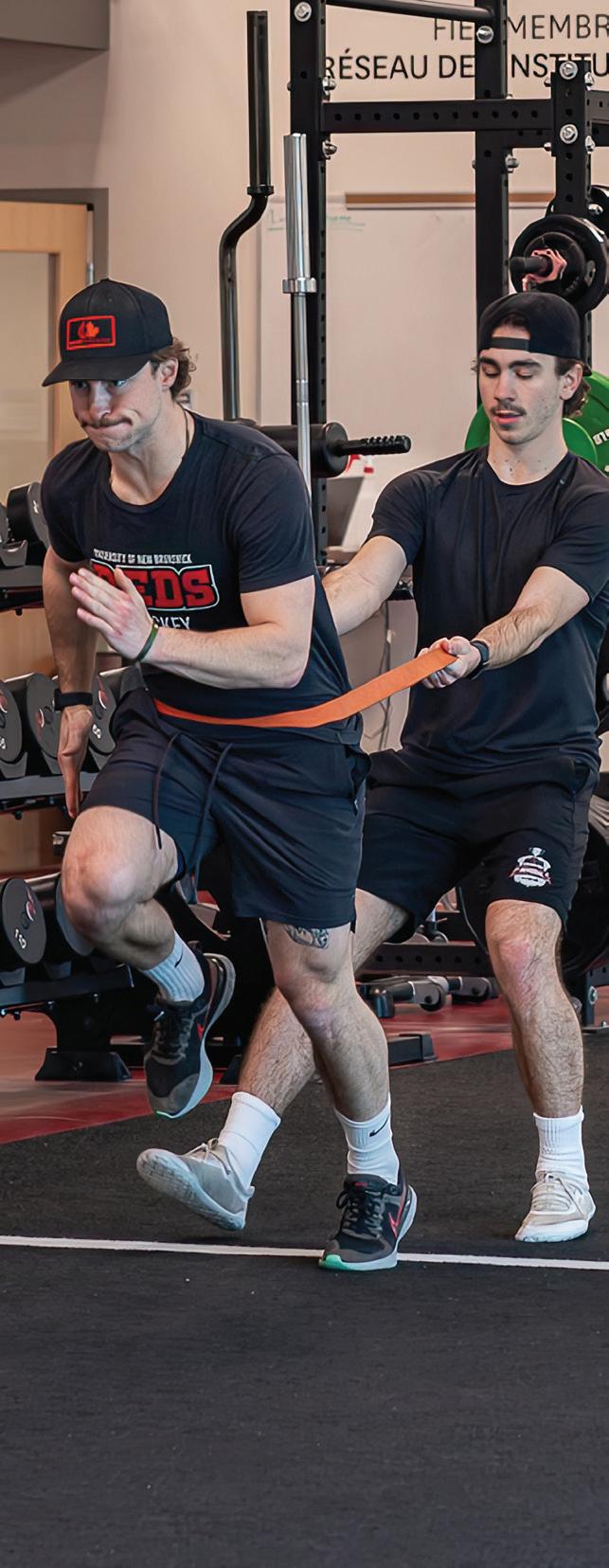
Schedules and more information can be found on the UNB REDS Recreation website.
ACADEMICS
GRADING SYSTEM
A student’s final standing in a course is indicated by the following letter grades:
4.3 GRADE POINTS
4.0 GRADE POINTS EXCELLENT PERFORMANCE
3.7 GRADE POINTS
3.3 GRADE POINTS
3.0 GRADE POINTS GOOD PERFORMANCE
2.7 GRADE POINTS
2.3 GRADE POINTS
2.0 GRADE POINTS
1.0 GRADE POINTS UNSATISFACTORY PERFORMANCE
0.0 GRADE POINTS FAILURE
A minimum grade of C is required for all courses used for credit towards an engineering degree. Prerequisites must be passed with a grade of C or better or a grade of credit (CR).
GRADE POINT AVERAGE
Grade point averages are calculated by dividing the total number of grade points obtained (credit hours x grade point weight) by the number of credit hours attempted during the time in the program. Grade point averages are shown to one decimal place. UNB calculates three grade point averages, which form part of the student’s official record:
ASSESSMENT GPA
For all students, the assessment GPA is calculated at the end of the assessment period, May to April, provided that 24 credit hours or more have been attempted in the program since the previous assessment. Courses designated with the “W,” “#,” or “X” notation are not included in the assessment.
CUMULATIVE GPA
The Cumulative GPA is based on all work taken toward a degree program.
SCHOLARSHIP GPA
To determine scholarship eligibility, a Scholarship GPA is also calculated at the end of the assessment year (May to April), provided that at least 24 credit hours have been attempted.
The Cumulative GPA and Assessment GPA are displayed on the student’s transcript of record. The Cumulative GPA is used to determine the student’s divisional standing at graduation meaning the level of academic achievement based on a student's GPA.
*Credit hours refer to the number of credits a course is worth. A one-term (4 month) course is typically worth 3 or 4 credit hours. A full year (8 month) course is typically worth 6 or 8 credit hours. If a student withdraws from a course with a W or an INC, then the course is worth 0 credit hours. Courses worth more credit hours typically include a lecture, tutorial, and lab requirement. A credit hour normally equates to two hours of work per week outside of the classroom or lab.
THE MINIMUM REQUIREMENT FOR AN ENGINEERING DEGREE IS THE ACCUMULATION OF 160 CREDIT HOURS.
Additional requirements for the individual programs can be found in the undergraduate academic calendar.
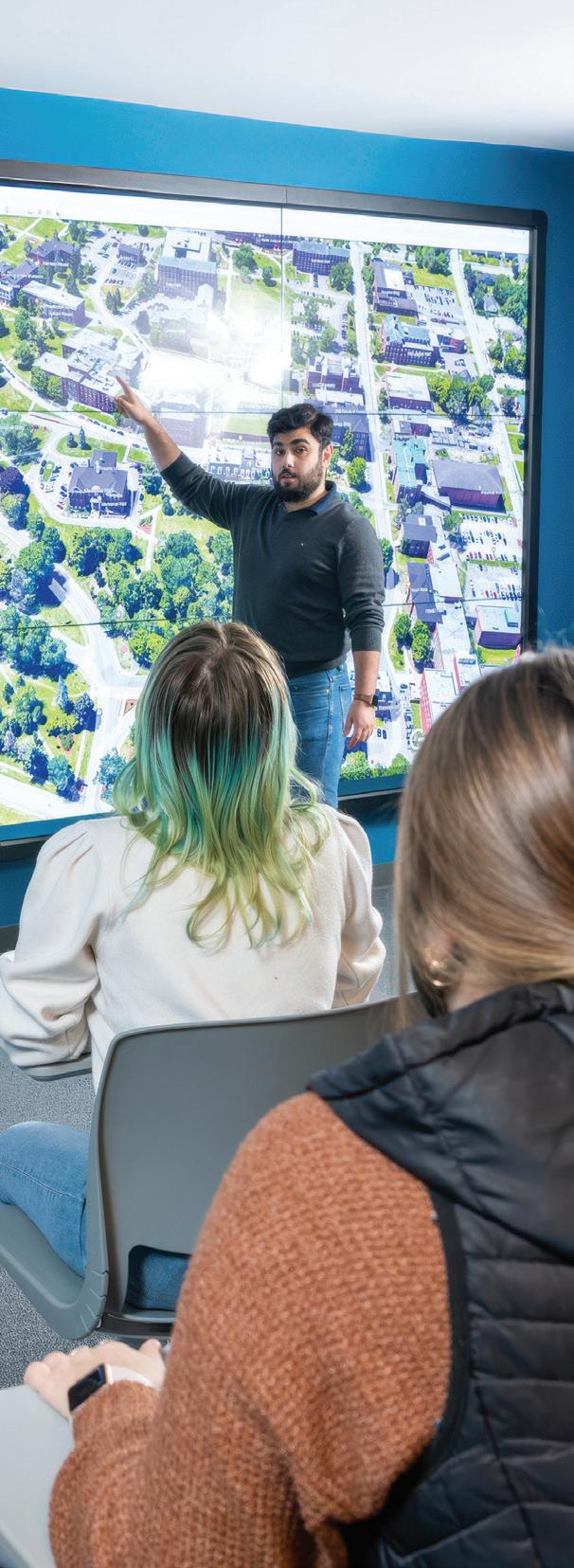
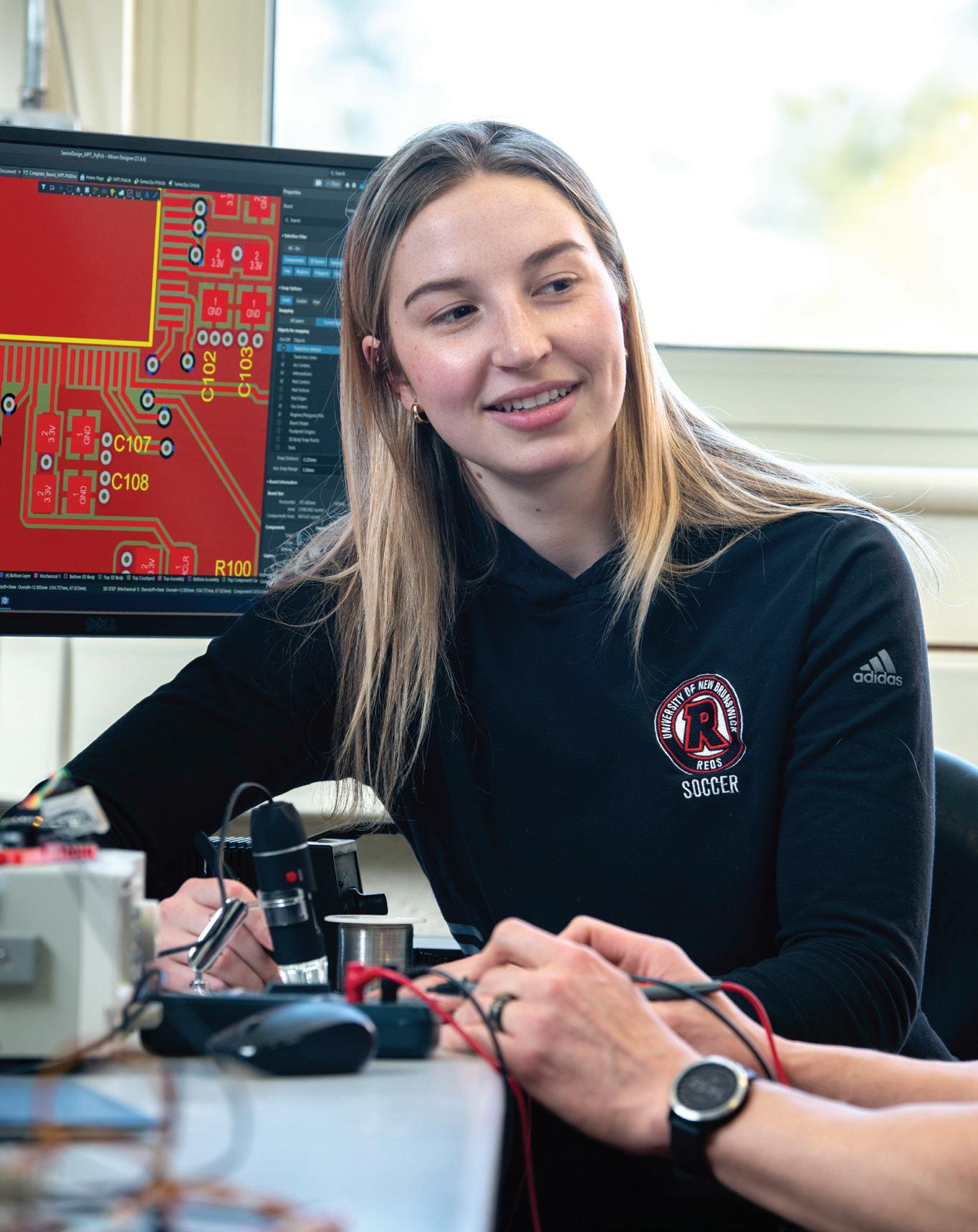
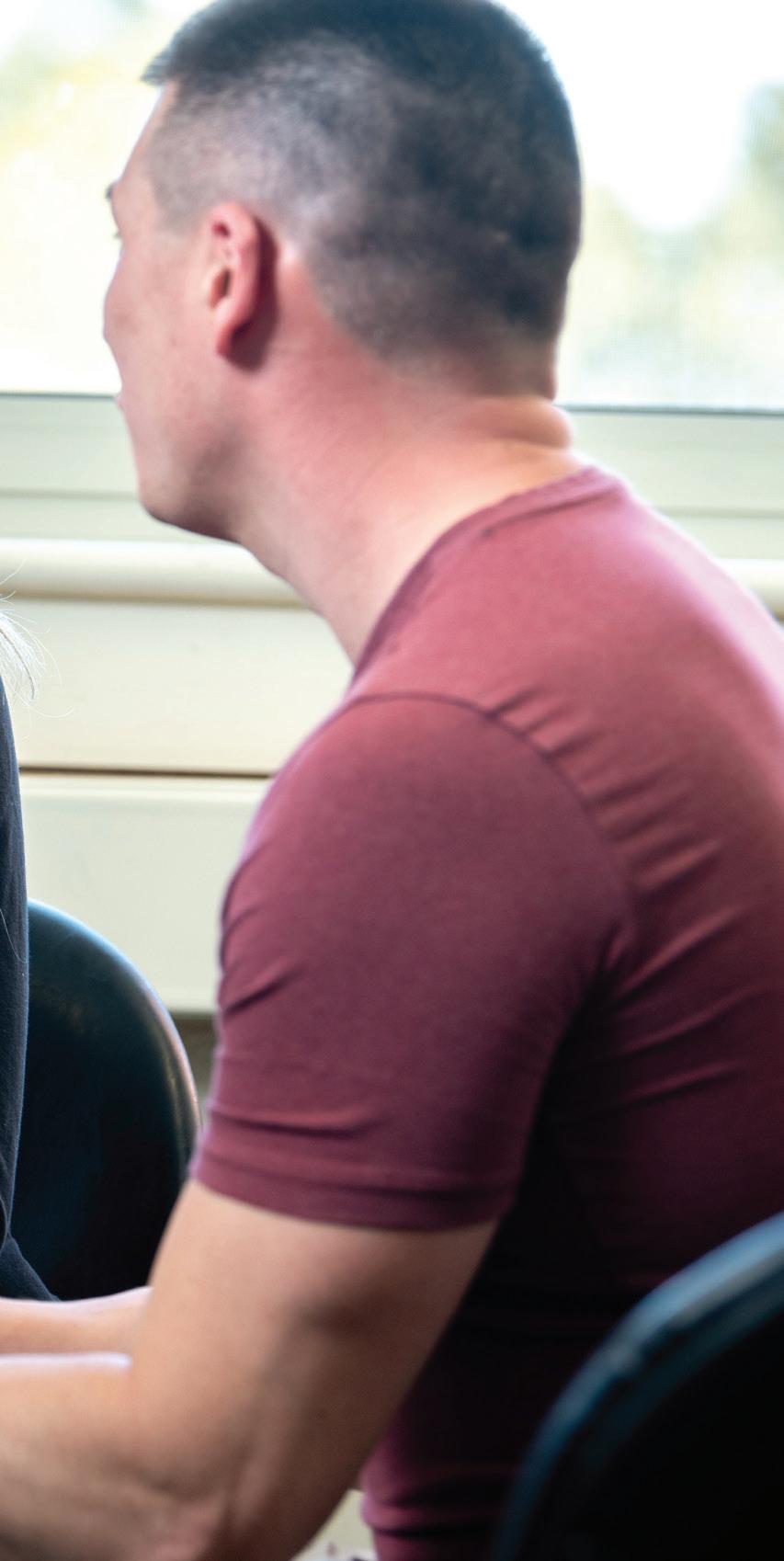
REVIEW OF FINAL COURSE GRADE
Students who are not satisfied with the decision of the instructor have the right to request a review of the official grade received for the course.
The request form is available at the Office of the Registrar or online
Such requests must be submitted in writing to the Registrar within 90 days after the end of the course or examination period.
HERE TO SUPPORT YOU EVERY STEP OF THE WAY.
SCHOLARSHIP RENEWAL & CONTINUING
STUDENT APPLICATIONS
A Continuing Student Application:
Students beyond their first year must submit a Continuing Student Application each year to be considered for funding.
A Application Availability: Applications open each year on January 2 and must be submitted by April 15.
A Credit Hour Requirement:
• Non-Co-op Students: Must complete a minimum of 24 credit hours from May 1 – April 30.
• Co-op Students: Must complete a minimum of 12 credit hours within the same period to be considered for the following academic year.
A GPA Requirement:
Students must achieve a minimum 3.7 GPA in the assessment year to receive guaranteed funding.
A Encouragement to Apply:
All students are encouraged to apply, as some donor-funded scholarships accept lower GPAs or have specific eligibility criteria that not all students may meet.
A Funding Notifications:
Students who are successful in securing funding will receive their notice of funding by mid-August.
Students who meet the academic requirement of 3.7+ and have 24 credit hours completed in the assessment year, automatically receive the following minimum commitment if they apply:
$7,000 4.2 $6,000 4.1 $5,000 4.0 $4,000 3.9 $3,000 3.8 $2,000 3.7 $1,000
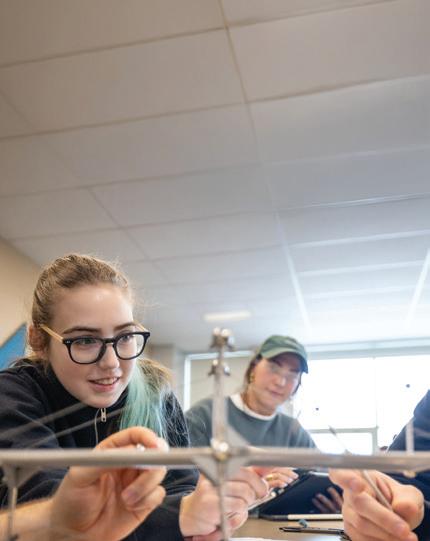
For donor funded scholarships, engineering specific opportunities can be found on the Undergraduate Calendar Awards. If you filter by engineering and the award type “scholarships for continuing students”, a full list of degree specific scholarships is displayed.
ACADEMIC STANDINGS
GOOD ACADEMIC STANDING
To continue in good academic standing in their program, students must achieve an assessment GPA of 2.0 or higher for the assessment period. A notation of “In good academic standing” appears at the end of the term record.
ACADEMIC PROBATION
If a student's assessment GPA falls below 2.0 but above 1.0 in an assessment period, the student is placed on academic probation. Academic probation indicates unsatisfactory performance and is a warning that the student must improve to meet the GPA requirements to avoid being required to withdraw from the university.
A student who fails three times to achieve a minimum grade of C in any course (excluding withdrawals and course attempts designated with the “#” notation) will be required to withdraw from the Engineering program.
ACADEMIC OFFENCES
Students should review and familiarize themselves with UNB’s regulations on academic offences. Academic offences include, but are not limited to the following:

ATTENTION
IF A STUDENT IS FOUND GUILTY OF AN ACADEMIC OFFENSE, THEY WILL BE SUBJECTED TO CONSEQUENCES.
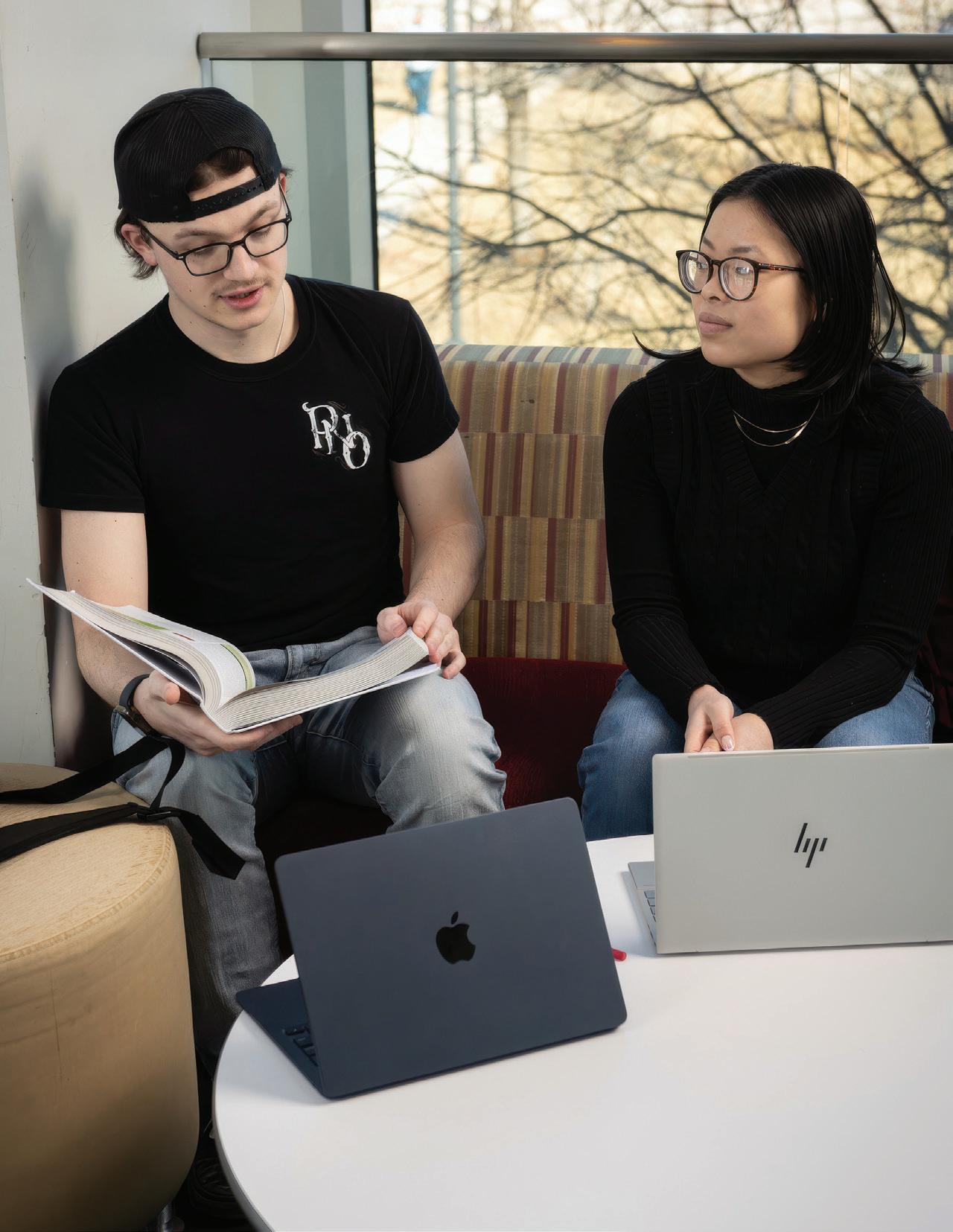
Examples of test, or course, student will
ACADEMIC OFFENCES (CONT.)
1. Plagiarism
Plagiarism includes:
A Quoting verbatim or almost verbatim from any source, regardless of format, without acknowledgement
A Adopting someone else’s line of thought, argument, arrangement, or supporting evidence without indicating such dependence
A Submitting someone else’s work, in whatever form, without acknowledgement
A Knowingly representing as one’s own work any idea of another
2. Cheating on examination, tests, assignments or reports, including, but not limited to:
A Impersonating a candidate at an examination or test or in connection with any assignment in a course or availing oneself of the results of impersonation.
A Obtaining through theft, bribery, collusion, purchase, or other improper manner:
A An examination or test paper prior to the date or time of the examination or test,
A Academic materials belonging to another person.
3. Falsifying or knowingly submitting false assignments or credentials, records, transcripts, or other academic documents.
4. Submitting a false health or other certificate
5. Submitting identical or substantially similar work for one course or program of study, which has been or is being submitted for another course or program of study, without the prior knowledge and approval of the instructors.
6. Interfering with the right of other students to pursue their studies
7. Knowingly aiding or abetting any of the above offences.
8. Tampering with, or altering, in any deceptive way, work subsequently presented for a review of the grade awarded.
Refer to the undergraduate academic calendar for details on GPAs, program requirements, and academic offences of penalties range from receiving a grade of F in an examination, course, and a notation on the transcript. In very serious cases, the will be suspended or expelled from the university.
STUDENT ENGAGEMENT AT UNB
ENGINEERING UNDERGRADUATE SOCIETY (EUS)
The UNB engineering Undergraduate Society (EUS) represents all undergraduates of the faculty of engineering and works to make the university experience more enjoyable. The EUS organizes student events throughout the year, as well as offers valuable academic services and a wealth of knowledge on topics such as academic advising, course selection, and more.
Head Hall, room GWC123
unbeus.com

ENGINEERING STUDENT SOCIETIES

SUBSOCIETIES
A Chemical Engineering Undergraduate Society (ChEUS)
A Civil Engineering Undergraduate Society (CSCE)
A Electrical, Computer, and Software Engineering Society (ECSES)
A Geological Engineering Society (GES)
A Geomatics Undergraduate Engineering Student Society (GUESS)
A UNB Student Society of Mechanical Engineers (UNB SSME).
The full list of student clubs and societies can be found on the main UNB website
SOCIETIES

ATLANTIC STUDENT RESEARCH JOURNAL
The Atlantic Student Research Journal (ASRJ) is a student-led organization whose online platform cultivates the pursuit of knowledge and innovation within the research and academic community. The ASRJ serves to connect students to research for the purposes of composing peerreviewed articles which serve to advocate for cutting-edge topics within Atlantic Canada to undergraduate students and the public. theasrj.com
DIVERSITY WITHIN ENGINEERING (DWE)
The Diversity Within Engineering Society (DWE) was created to promote diversity and inclusion within the engineering faculty.
UNB Diversity Within Engineering @unbdwe
ENGINEERS
WITHOUT BORDERS (EWB)
Engineers without borders is an international development group that focuses on systemic and sustainable change is rural Africa.
Engineers Without Borders UNB Chapter unb@ewb.ca @ewbunb
WOMEN IN COMPUTER
SCIENCE & ENGINEERING (WICSE)
WiCSE provides support and resources for female students in the engineering and computer science faculties at UNB.
wicse.unb@gmail.com @wicse_unb
INSTITUTE OF ELECTRICAL AND ELECTRONICS ENGINEERS AT UNB (IEEE)
IEEE UNB aims to highlight meaningful technology at UNB in Fredericton through exciting events.
ieee@unb.ca
GIRLS STEM UP
Girls STEM Up are strong advocates for the inclusion and promotion of women in STEM fields, which led to the establishment of an annual conference. Girls STEM Up aims to make a meaningful impact on girls’ careers through strengthening existing partnerships for women in STEM and introducing new ones. girlsstemup.org
STUDENT INNOVATION AND ENTREPRENEURSHIP
MAKERSPACE
Have an idea or design you want to bring to life? Makerspace is open to all students, regardless of faculty or department. Welcome to your source for innovation, design, and collaboration.
WHAT IS A MAKERSPACE?
Located in Head Hall, room B8, Makerspace is a workshop and design studio all together in the same spot. It provides an inclusive and supportive space for Makers to share ideas and techniques and to create prototypes or project. Makerspace has high quality 3D printers, a laser cutter, and a huge selection of electronic devices, parts, and tools.
If you are nervous to try out Makerspace or need assistance, there are student facilitators on hand to help you learn the equipment and bring your ideas to life. For more information, contact unbmakerspace@unb.ca or visit the UNB Makerspace Facebook page
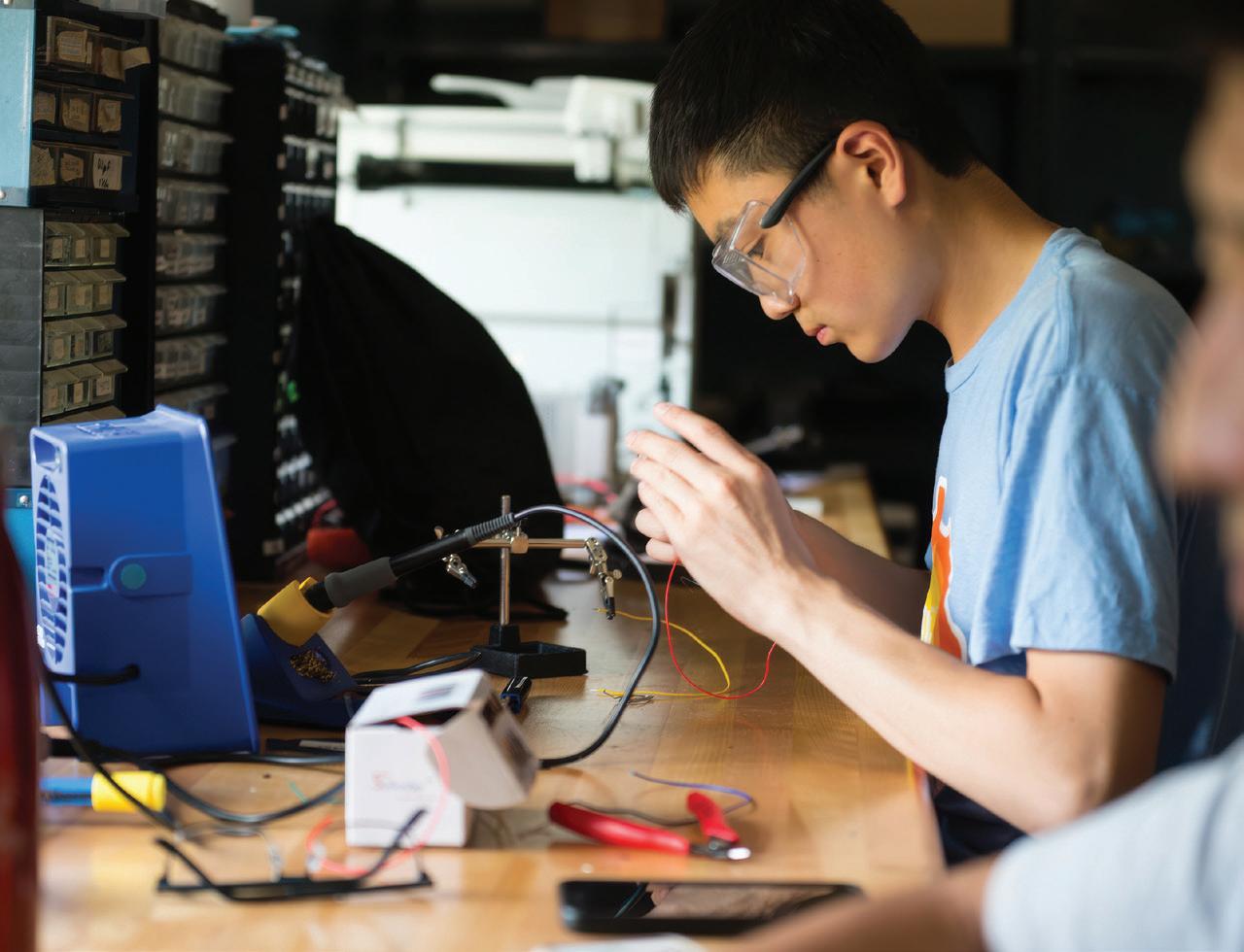
ENGINEERING CAREERS
Completing a bachelor of engineering degree is the first and most important step towards becoming a Professional Engineer (P.Eng.). Once you complete your BScE you are eligible to work under the supervision of a professional engineer as a member in training until you have demonstrated the 34 competencies required to become fully licensed. Normally this takes 3 to 4 years.
Students can find more information on the licensure on the APEGNB website
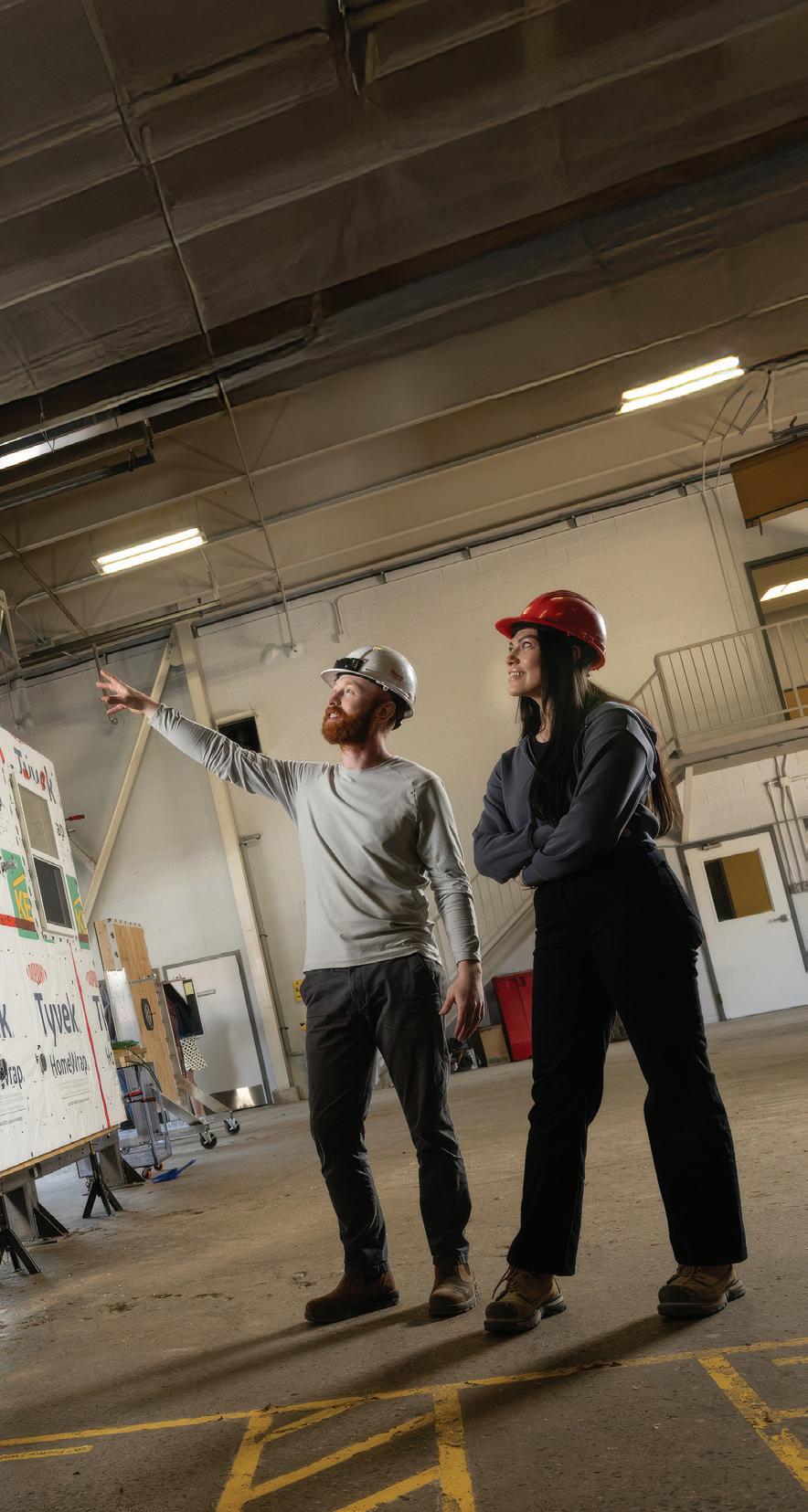
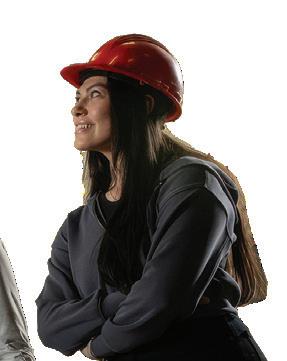
THINGS YOU SHOULD KNOW... ?
ABOUT THE BScE PROGRAM
I’ve just been accepted into Engineering at UNB! What are my next steps?
A: Congratulations on your acceptance to UNB engineering!
Visit the UNB Admissions page for next steps and to confirm your acceptance
After completing the admissions process, make sure to register for Spring Orientation, Advising and Registration (SOAR). SOAR takes place every spring and offers valuable information about the engineering programs, co-op opportunities, and insights into your upcoming first year.
Virtual SOAR sessions are also offered during the summer. Keep an eye on your UNB email for updates on upcoming sessions.
For more information and to register for SOAR, visit our webpage
When you arrive on campus in September, you will take part in 1st year engineering orientation. This event will help you prepare for your first year, introduce you to faculty and professors, and provides opportunities to connect with other new or returning engineering students.
What will I study in my first year of engineering?
A: Your first year will consist of foundation courses in Math, Physics, Chemistry, and Computer Science. You will also take five Engineering foundation courses. These courses will introduce you to the field of engineering.
In your second term, once you have chosen your program, you will take one or multiple foundation courses in your area of study.
How long is the BScE program?
A: The BScE is a four-year program; however, students who participate in co-op will often extend their degree to four and a half or five years.
How large are the classes in the engineering program?
A: First year courses can be as large as 300 students for the lectures, however, labs and tutorials are divided into sections of 35 to 60 students. Upper year classes will range from 10 to 70 students depending on the program.
How do I find out who my advisor is?
A: You can find your advisor on the Academic Success SharePoint page by searching for your program, or by reaching out to your department office.
Are there study spaces/ computer labs/lounges available for engineering students?
A: There are several study spaces available for engineering students. The Engineering Undergraduate Society (EUS) has a study room in Head Hall, room C124, which is open to all students. Each department also provides a student lounge and workspace to students, which can be accessed using your UCard. Students can also use the study spaces available in the Head Hall Commons.
The Engineering and Computer Science Library, located in Head Hall room C15,
also offers quiet study spaces. Multiple student computer labs are available in Head Hall, Gillian Hall, and ITC. Unless a lab is in session, these labs are open for student use, with operating hours posted on the door. Please note that labs are locked at 2 a.m. when the buildings close.
The Wayne Carson Student Success Centre is located in Head Hall, room H3001, and provides study and workspace for students.
Can I do a minor in another program?
A: To declare a minor, you must first meet with your department’s Director of Undergraduate Studies to determine if a minor is permitted and to discuss its relation to your program of study. Following the meeting, if you are approved to do a minor, you must contact the program offering the minor regarding courses and other requirements.
The academic calendar regulations for minor programs can be found here
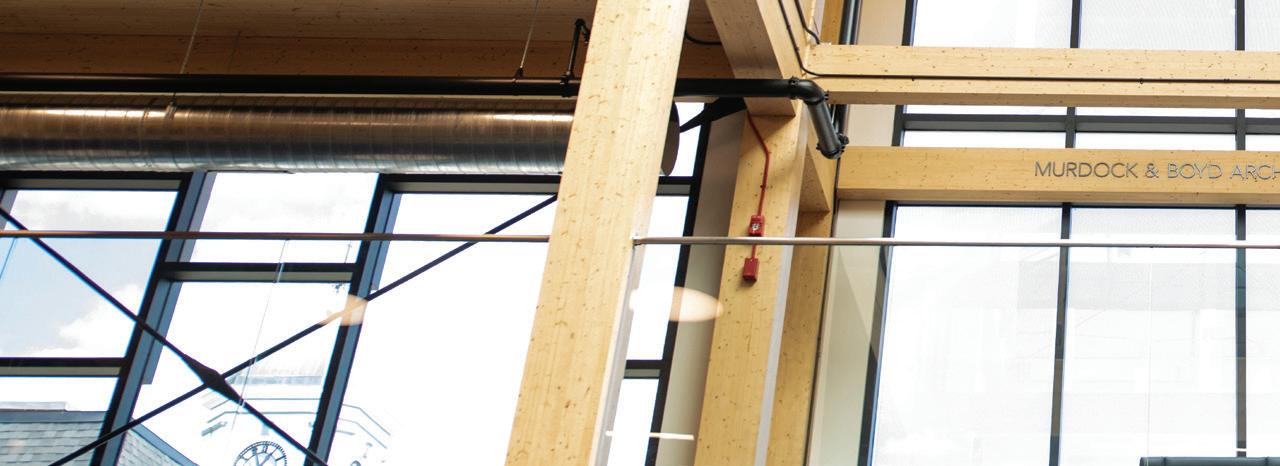
CHOOSING YOUR PROGRAM
How do I choose my discipline?
A: Students should indicate program preferences to the Dean of Engineering Office prior to the last day of Fall term classes. Students will be sent a survey asking them to indicate their top three choices. All students who have been accepted to the faculty are guaranteed a program of study by the end of their first year.
Will there be opportunities to learn more about the programs before I make my decision?
A: You will have plenty of opportunities to learn more about the engineering programs before you make your decision. You can participate in Spring Orientation Advising and Registration (SOAR) or a virtual program information session in the summer before your first year to learn more about the different engineering programs.
When you arrive on campus in September, you will participate in orientation, where you will learn more about the programs and have opportunities to meet professors and upper-year students in the department.
All 1st year engineering students are also enrolled in ENGG 1001: Professional Lecture Series I, during their first term. During this course, students learn about each discipline through lectures and presentations from professional engineers in the field.
Is it possible to change my program?
A: Yes, it is possible to change your program, and it is perfectly fine to do so during your degree. You will need to book an appointment with your academic advisor to discuss the process and requirements for making the change.
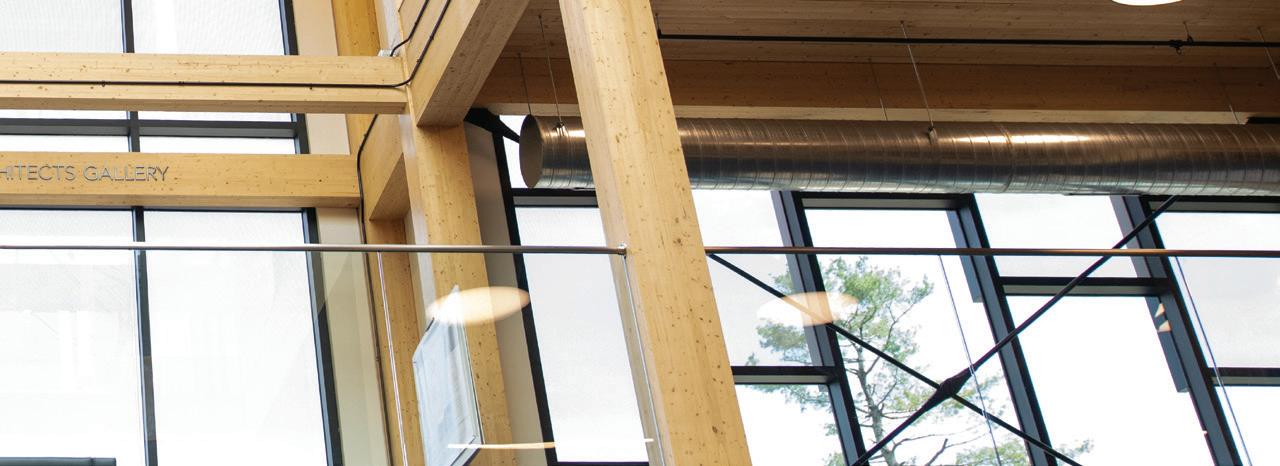
ABOUT COURSES
How many courses do I take in my first year?
A: In your first year, you will take between 13 to 14 courses over a Fall and Winter term. Your first term will be a “common first term” of 7 courses.
How do I register for courses?
A: Once you have officially accepted your offer and paid your admissions deposit, you will be automatically registered for your first term courses and some of your second term courses. This process occurs in mid-May to early June. Please expect up to 14 days after the deposit is paid for your courses to appear in your schedule.
To register for your additional courses, log into MyUNB portal, select “I am a student” from the drop-down menu, then “Student Planning & Registration.”
How do I drop a course?
A: Students can drop term or full-year courses until the second Friday after classes begin, and the dropped courses will be removed from their record. To drop a course, log into MyUNB portal, select “I am a student” from the drop-down menu, then “Student Planning & Registration.”
If a student withdraws from a course after the second Friday but before the final deadline, it will not result in an academic penalty and will appear as a "W" on the transcript. Withdrawing after the final deadline will result in a "WF" on the transcript,
and a grade of zero (0) will be factored into the GPA calculation.
The deadlines to add or drop courses can be found in the academic calendar
Students are advised to consult with their academic advisor before dropping any required courses.
What do I need to prepare for my courses?
A: The instructor will provide you with a course syllabus during your first week outlining the requirements for the course. This will include details on textbooks, lab equipment, and other necessary supplies.
Textbooks and supplies can be purchased from the UNB Bookstore
How do I get in touch with the instructor for a course?
A: At the start of the semester, your instructor will provide a course syllabus containing their contact information, office hours, and guidance on how to contact them. When emailing your instructor, be sure to use your UNB email and include your name, student ID, and the course name.
What happens if I fail a required course?
A: If you fail a required course (you receive a grade of D or F), you must repeat the course. A minimum grade of C is required for all courses used for credit towards an engineering degree and to count as pre-requisites.
humanities or social science disciplines: Anthropology, Classics, Literature (English, French, German, Spanish), History, Philosophy, Political Science, or Sociology. You can choose courses that interest you, fit in your schedule, and that you have completed the prerequisites for. Online courses can also be used to complete the requirement.
Can I take courses during the summer term, online, or from another university?
A: Yes, you can take courses during the summer term. Students will often use the summer terms to complete elective or prerequisite requirements.
Please be aware that not all departments offer summer courses, so be sure to consult with your department and the course catalogue before deciding to take summer courses.
Online courses are offered through the College of Extended Learning
You may need approval first to take an online course for credit towards your degree, so be sure to check with your department or advisor before registering. To take a course at another university, you must get permission first from the Registrar’s office.
I am waitlisted for a course, what happens now?
A: Waitlists are handled differently depending on the type of course.
For Department core courses, some have the enrolment cap set at 0 to ensure that only qualified students can register. If you plan to take one of these courses, put your name on the waitlist. If you have the necessary prerequisites, you will be moved from the waitlist onto the class list.
For Technical electives, some courses have an enrolment cap. The waitlist is managed by the course instructor.
Team design courses, such as ENGG 4000: Senior Design, are intended for students in their graduating year. Only eligible students will be moved from the waitlist to the class list. You can also reach out to your department for more information on waitlists and how they are managed within each department.
Is there flexibility in course selection? Can I take courses in other subjects?
A: Engineering students must take for credit at least one 3 ch course from one of the following
I am struggling with one of my courses, is there help available?
A: If you are struggling with one of your courses, the first step is to contact the course instructor for guidance.
UNB also offers a tutoring program where students can receive help from peer tutors.
The Math Help Centre, located in Tilley Hall, room 422, offers both individual and group tutoring for a variety of undergraduate math courses.
Additionally, the UNB Writing Centre, located on the 4th floor of the Harriet Irving Library, provides one-on-one help with written assignments and essays.
ADDITIONAL QUESTIONS
How do I join a student club or society?
A: UNB engineering offers a variety of student clubs and societies that are always looking for new members. The Engineering Undergraduate Society (EUS) represents all undergraduate engineering students and organizes various events throughout the year. Additionally, each department has its own subsociety, managed by students in that program.
More information on the EUS and their subsocieties can be found on the website
The full list of student clubs and societies can be found on the main UNB website
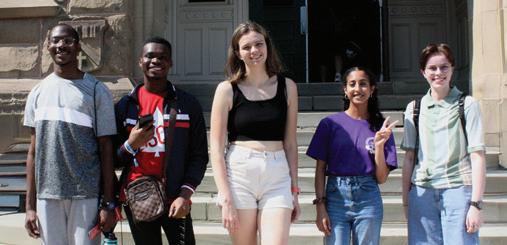
Where can I find more information on scholarships?
More information on scholarships and how to apply can be found on the website
Where can I find more information about the co-op program?
Visit the website for more information on the co-op program
Current students can find the steps to join co-op on the Engineering & Science Co-op SharePoint page
Students in the bachelor of software engineering (BSSWE) program do their co-ops through the faculty of computer science co-op program.
More information can be found here regarding this program
Where can I find more information about the Diploma in Technology Management and Entrepreneurship (DTME)?
A: Undergraduate students can earn the DTME alongside their degree program by completing 5 TME courses as electives.
More information on the DTME can be found here
STILL CURIOUS? THAT’S THE SPIRIT OF AN ENGINEER.

